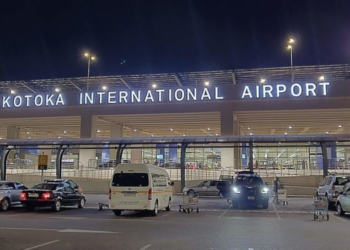President Nana Addo Dankwa Akufo-Addo yesterday urged foreign governments and agencies to ensure that projects they design to support Ghana’s agricultural sector naturally align with the government’s priorities.
In a compelling address at the Presidential Breakfast Meeting organized by the Ministry of Food and Agriculture (MoFA) in Accra, President Nana Akufo-Addo underscored the critical importance of harmonizing the objectives of international development agencies with the national policies and strategies of his government. While acknowledging the fruitful collaboration between his administration and development partners, the President expressed a genuine concern over the misalignment of priorities within this dynamic.
Dignitaries from international organizations, including the World Bank, the Food and Agriculture Organisation, the US Agency for International Development, Alliance for a Green Revolution in Africa (AGRA), the World Food Programme (WFP), GAC, KfW, the International Fund for Agricultural Development (IFAD), and the European Union, converged for the breakfast meeting. The primary objective was to deliberate on how to foster a more seamless partnership between MoFA and its esteemed development partners, thereby strengthening their combined efforts to bolster the agricultural sector, with a particular focus on the PFJ 2.0 program.
The proceedings were marked by two substantial panel discussions, each falling under the overarching themes of “Enhancing coordination of development partners’ intervention under PFJ 2.0” and “Financing agriculture: The role of development partners.” President Akufo-Addo emphasized the gravity of adhering to aligned policy objectives, underlining that any deviation could result in misplaced investments. He contended that this forum offered a unique opportunity for stakeholders to pinpoint the factors contributing to the disconnect and, crucially, to implement remedial measures.
“Furthermore, we should also address the unwelcome situation where government, through its agencies such as the Ministry of Finance and the Ministry of Food and Agriculture, has no full knowledge of some funds being used in the country by International Development Agencies (IDA),” he added.
He called for discussions on funding mechanisms such as loans, grants and technical assessments of other agricultural support initiatives.
“The second phase of the PFJ will raise awareness about the potential of Ghana’s agriculture and draw in the necessary investment, facilitated by your invaluable support, so that we can achieve food security and economic growth in Ghana,” the President emphasised.
On the part of government, he gave an assurance that it would create a conducive environment and was committed to meeting the expectations through regulatory measures and incentives.
He expressed confidence that the second phase of the PFJ, with its focus on an input credit system that accommodated all value chain participants, would continue the progressive transformation of Ghana’s agricultural landscape.

































